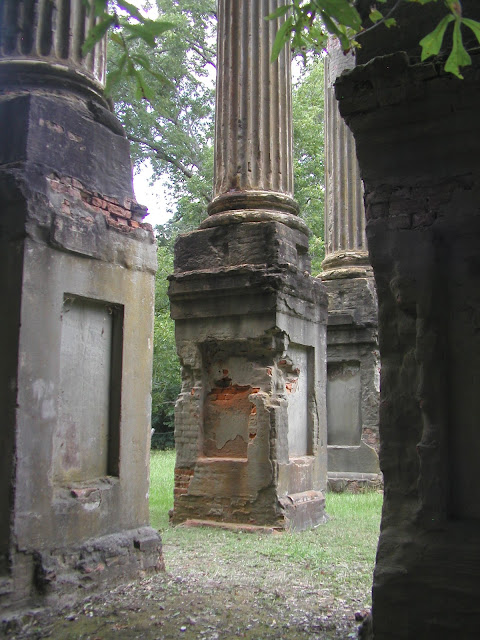
The first time I noticed him it was the holidays – I can’t remember if it was Thanksgiving or Christmas. I was driving home on Kingston Road when I saw the little white dog running down the road after a car. I slowed my car and he started running toward it. Then another car passed. His ears perked up as it neared; then as it blew past, he ran after it.
It was obvious what had happened; it broke my heart. How could someone just dump a little dog like that? You could almost hear him shouting, “Wait! Wait! You forgot me! Come back.”
As the car drove on, he gave up and trudged back toward his post by the gate where he’d been left. He couldn’t have weighed more than ten pounds. He was just a little terrier mix, cute as could be and desperate to find his family.
I parked my car and got out. He stopped, eying me -- wary and distrustful. Remembering all the dog advice I’d heard throughout the years, I tried to make myself as unimposing as possible, and crouched down on my knees, holding out my hand.
“Come on, fella,” I coaxed in my highest singsong voice – the one reserved for babies and pets. It almost never fails. “Come on, baby!”
But he wouldn’t come. If I tried to inch closer, he ran away, refusing to be bribed with kindness. So I went home to get something more tempting. I came back with cold cuts from the fridge. But he was adamant. All he wanted was his family, who he was certain were in the next car coming down the road.
The weather forecast for later in the week was for below-freezing temperatures. Lying in my warm bed, I wondered how he’d make it. The next day, my father and I set out a humane animal trap, baiting it with leftover roast and hiding it behind some branches so it wouldn’t be stolen. But no matter how many days we left it freshly baited, he wanted nothing to do with it.
In the meantime, we and several other area residents began putting out food and water for him, comparing notes on our efforts to catch the little scamp. Somehow he survived the cold weather, even seeming to thrive. He moved up onto the embankment by the road, where he’d sit like a proud watchdog, guarding his little kingdom by the Kingston Road, but still chasing after passing cars, certain his family would finally stop. Hope must spring eternal in the canine heart, too.
Every day on my way to and from town, I’d hold my breath, hoping he hadn’t been hit by a car. Often, I’d not see him at all, and wondered what had become of him. Then one day there he’d be, watching for cars and running after them, day after day, then week after week, the little white, elusive phantom of Kingston Road. I dubbed him “Phantom” in my mind, and saluted his "dogged" persistence. Some days he looked so cocky and proud I laughed aloud, and began to look forward to seeing him surveying his little kingdom.
Finally one day about three months later as my father crested the hill, he saw what we’d all been dreading. Phantom lay beside the road, perfectly still while a kind and concerned woman bent over him, looking for signs of life. He lay breathing but unconscious and broken. Daddy took him to the vet where he died later that night. It was painful and it was sad and it was all so unnecessary.
I often wonder about the people who left their little dog by himself on the side of the road at holiday time. I wondered if they ever traveled down Kingston Road and saw him bravely trying to recapture his people. I wondered if they had a happy Christmas. There are crosses along Kingston Road where people who’ve died in automobile accidents are honored, their memories cherished. There is no cross for Phantom; only regrets.
I regret not calling the Humane Society – something that in all my efforts, hadn’t occurred to me. I don’t know why. Perhaps they’d have been able to catch him and prevent a senseless death.
The local shelter is in the final push to raise money for a new shelter with more room and better facilities than the one they’re presently using with even enough room for the occasional horse, mule or other large animal.
In lieu of a roadside memorial for Phantom, I think I could honor his memory best by asking you, Reader, to make a donation to the Natchez Adams County Humane Society. And, please, please, don’t leave your pets to die painfully on a lonely road. The phantom of Kingston Road will haunt me for years to come.
Natchez Adams County Humane Society
392 Liberty Road
Natchez, MS 39120
601-442-4001
Mailing address :
P. O. Box 549
Natchez, MS 39121
Please denote on check whether your donation is for the building fund or the general fund. Thank you. Only checks denoting that it is for the building fund will be used for the new shelter.
* Photo Credit: Http://flickr.com/photos/wizmo Thank you, Wizmo!





















.jpg)
